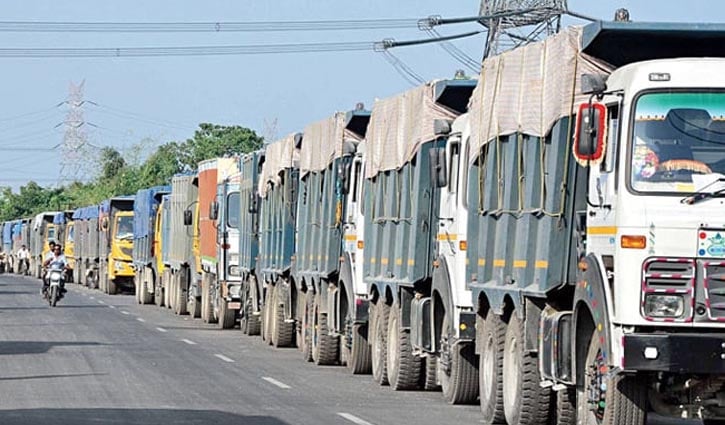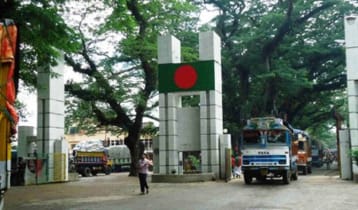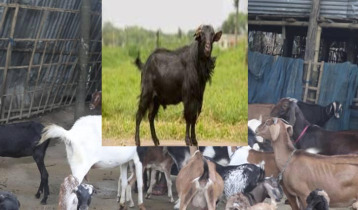Transit Deal: How Bangladesh can get benefits
Siam Sarower Jamil || risingbd.com

Recently, social media has been abuzz with negative commentary surrounding the Bangladesh Prime Minister's visit to India and the transit issue over the past few days. Some critics claim that "the present government is selling the country to India." To understand this, we need to delve deeper. It is notable that Prime Minister Sheikh Hasina visited India twice in such a short span. Bangladesh’s increasing role in global politics is recognized by New Delhi, suggesting that India seeks closer ties with Bangladesh due to its rising importance.
Historically and geopolitically, Bangladesh has maintained good relations with India. Bordered by India on three sides and the Bay of Bengal on the other, with Nepal and Bhutan nearby, Bangladesh's strategic position is crucial. This led to the signing of the Bangladesh-Bhutan-India-Nepal (BBIN) initiative, which promises mutual benefits if fully implemented. The Bangladesh-India land border is the fifth largest in the world, and both countries stand to gain from enhanced trade relations. While India's larger size may yield it greater profits, the transit discussion should focus on mutual benefits rather than disparities.
Global trade dynamics are shifting, and alliances can change rapidly. Economic factors now often overshadow political ones. If transit becomes fully operational, Bangladesh’s global standing could improve significantly. Singapore and Malaysia are prime examples of countries that developed through strategic use of their ports. Similarly, Bangladesh can leverage Chittagong, Mongla, and Payra ports to boost its economy. The crucial question is whether Bangladesh is ready to embrace transit. With the Asian Highway and BBIN framework in place, Bangladesh is poised to become an emerging power in Asia. Both countries benefit from trade, making the transit issue mutually advantageous.
Transit involves using another country’s land to transport goods to a third country, whereas transhipment involves transferring goods between vehicles at the border. For example, if India transits through Bangladesh, Bangladeshi vehicles can access Nepal or other countries via Indian territory. Bangladesh stands to gain by making India dependent on its transit routes, which can be a potent diplomatic tool. This leverage can address issues like customs, border killings, maritime disputes, and water-sharing agreements.
On June 23, 2024, several project agreements, including transit and the Teesta Master Plan, were signed between India and Bangladesh. These agreements mark a commitment to joint cooperation. The Teesta Master Plan, in particular, will only succeed if the Teesta Treaty is implemented. Bangladesh aims to achieve a 22% GDP growth by 2041, with an interim goal of officially becoming a developing country by 2026. To retain duty-free benefits, Bangladesh has signed a Comprehensive Economic Partnership Agreement (CEPA) with India, as it currently enjoys duty-free access on 97% of its exports to India. The transit-transhipment initiative will further enhance India-Bangladesh strategic relations, remove trade barriers, and support CEPA implementation.
Transit and transshipment will also boost Bangladesh’s transportation infrastructure, involving local trucks and creating economic opportunities. While there are controversies over low repayment rates, a fully operational transit system will generate substantial income from port fees, shipping agents, and transit operators. Improved infrastructure, funded by India, will also benefit Bangladesh’s road, bridge, and port capacities. As a result, Bangladesh will gain better access to Nepal, and Bhutan through Indian territory, enhancing regional trade and connectivity.
Rail transit is not new. Post-1947 partition, several Bangladesh-India rail routes were closed and later reopened. The current transit focus is on facilitating Indian goods movement to its northeastern states, which benefits Bangladeshi businesses by reducing transportation distances significantly.
Nepal and Bhutan signed transit agreements with Bangladesh in 1976 and 1984, respectively, but implementation faced obstacles. Recent efforts have increased the number of land ports and transit routes. Currently, Nepalese and Bhutanese trucks can transport goods to the Bangladesh border via India but cannot proceed to Mongla or Chittagong ports. This situation underscores the need for improved infrastructure and port capacity to facilitate transit.
Despite ongoing discussions on social media, much of the transit potential remains unrealized due to inadequate infrastructure. The BBIN motor vehicles agreement of 2015 has yet to yield visible results for Bangladesh. Transit and transhipment are common regional practices, much like the European Union's shared currency. Embracing transit can address various outstanding issues with India, such as the Teesta water-sharing agreement, border issues, maritime disputes, non-tariff barriers, and trade deficits.
Bangladesh’s independent foreign policy and diplomatic strategies aim for a balanced, win-win situation with India, avoiding a zero-sum game. The long-term benefits of transit-transhipment for Bangladesh will become clear over time, provided that infrastructure development is prioritized. Social media commentary should be informed and constructive, respecting national sovereignty and constitutional integrity. We must approach these issues with caution and confidence.
The writer is a fellow at St. Stephen’s College, University of Delhi
NH/Mukul























